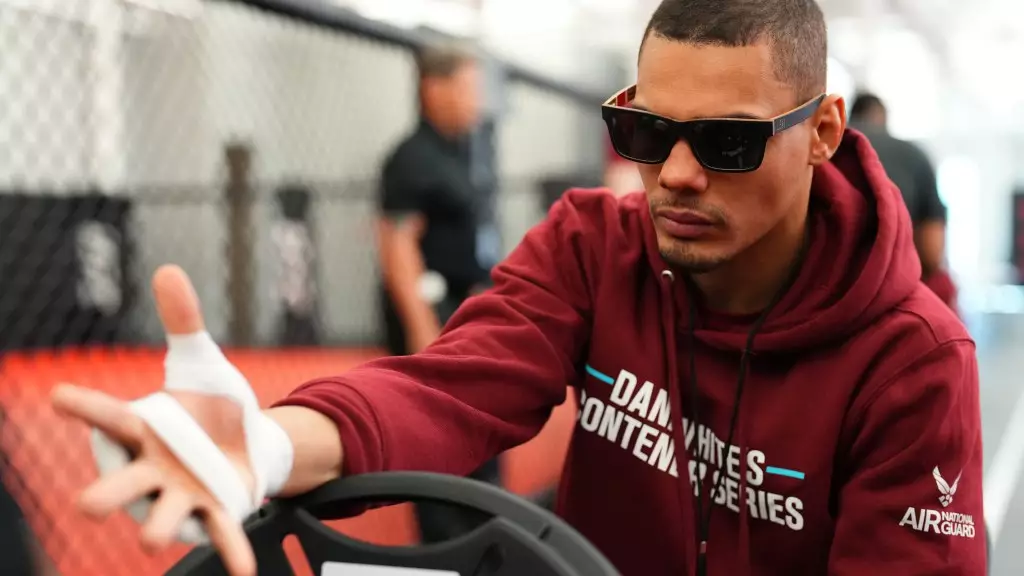The world of mixed martial arts (MMA) is no stranger to controversy, and the latest incident involving Dana White’s Contender Series (DWCS) has only served to underline the ongoing issues regarding athlete conduct and performance-enhancing substances. Following a recent meeting of the Nevada Athletic Commission (NAC), four fighters who participated in DWCS 2024 found themselves facing disciplinary actions for violating drug policies. This incident raises significant questions about the integrity of the sport and the responsibilities of athletes.
During the NAC’s monthly meeting, the commission made critical decisions regarding the four fighters implicated. While each case presents its unique circumstances, a common theme emerged: failed drug tests. These violations, particularly in a highly regulated environment like DWCS, reflect a troubling trend among up-and-coming fighters.
The first case involved Torrez Finney, who lost his bout due to a first-round TKO against Abdellah Er-Ramy. Finney tested positive for drostanolone, a substance known for its anabolic properties. Though he suffered a defeat, the consequences of his actions extend beyond the loss; he has been temporarily suspended until further decisions are made. His situation is emblematic of a growing concern in professional sports: the temptation to seek an unfair advantage.
Withdrawal and Substance Abuse
Another fighter, Pedro Ottoni, decided to withdraw from his fight moments before the scheduled bout, only to be found with clomiphene in his system. This incident not only reflects poor sportsmanship but also raises questions about the mental and physical preparedness of athletes in high-stakes situations. By withdrawing instead of competing, Ottoni’s decision signifies a deeper issue of confidence and perhaps desperation, further complicating the conversation around athlete wellness.
The third suspension involved a fighter who lost to Kevin Christian, dominated by a triangle choke submission. Testing positive for GW1516, this individual faces repercussions that underscore the severity of PED use. Such incidents not only tarnish personal legacies but also impact the broader community by potentially perpetuating a culture of cheating.
A Strict Stance on Compliance
Finally, Michael Imperato faced a nine-month suspension for testing positive for stanozolol after his match against Cortavious Romious. His punishment includes a notable fine and further drug testing, highlighting the commission’s commitment to maintaining the integrity of the sport. The fines and suspensions serve not only as punishment but also as a deterrent to future violations.
As the NAC prepares for its next scheduled meeting on December 17, the outcomes of these cases will be under scrutiny. The continued effort to uphold the standards of professional fighting must remain a priority for commission members, trainers, and fighters alike.
The incidences related to Dana White’s Contender Series illuminate a pressing need for systemic changes within the sport. As MMA continues to gain popularity, the importance of stringent enforcement of drug policies cannot be overstated. It raises a larger conversation about athlete support systems, the pressures they face, and the potential ramifications of their choices.
As these fighters navigate their legal and disciplinary challenges, the integrity of MMA hangs in the balance. The hope is that, moving forward, the sport can foster a culture that prioritizes fairness and promotes athletes who embody the true spirit of competition, free from the stain of illegal substances.

